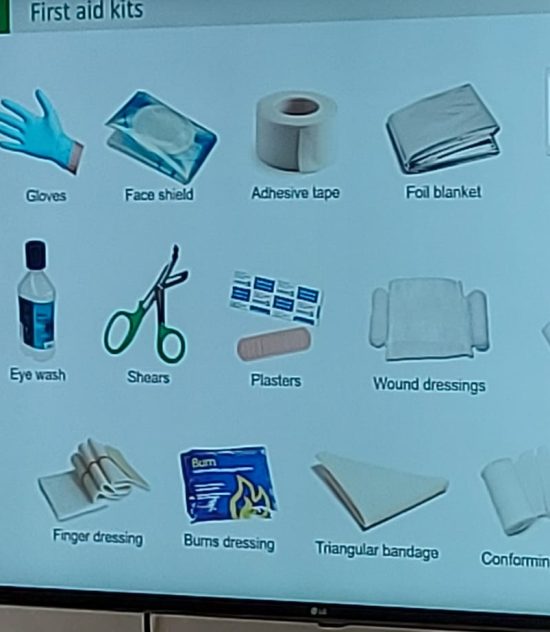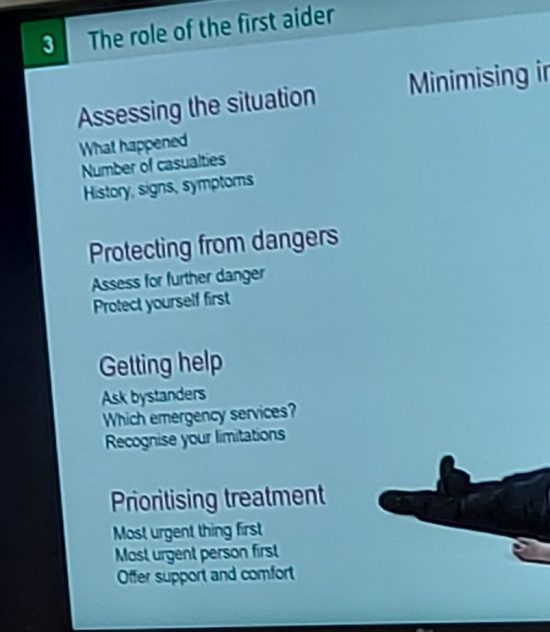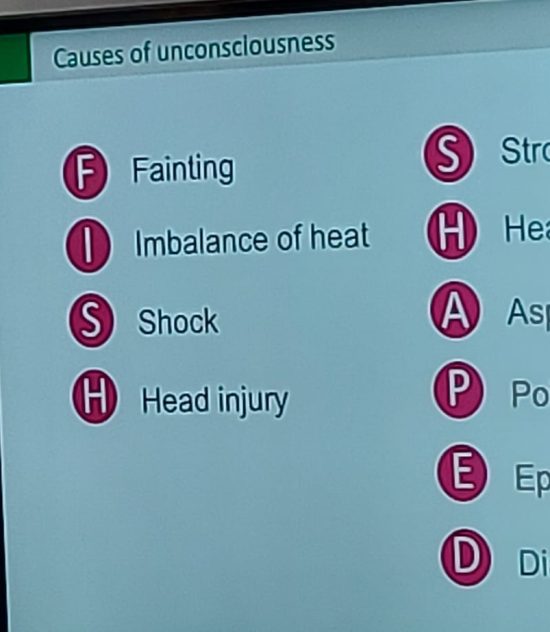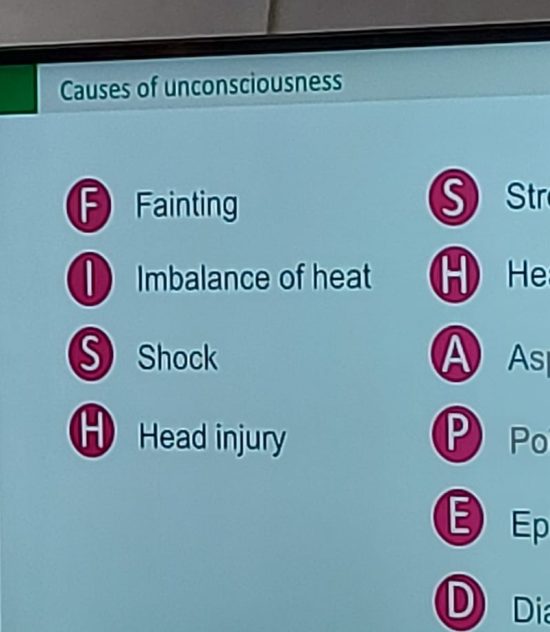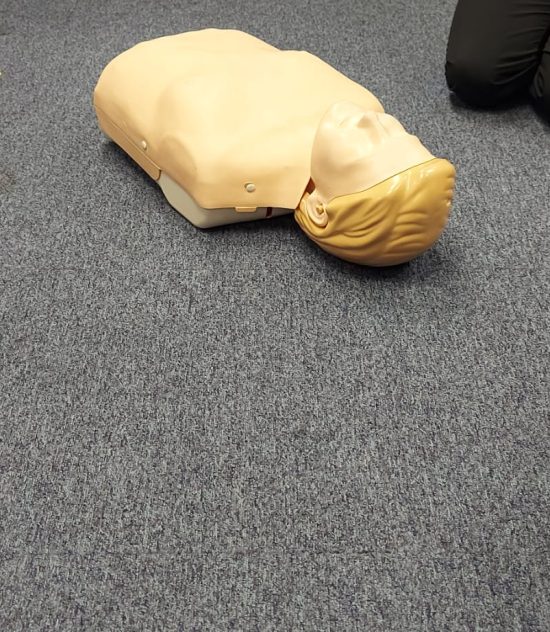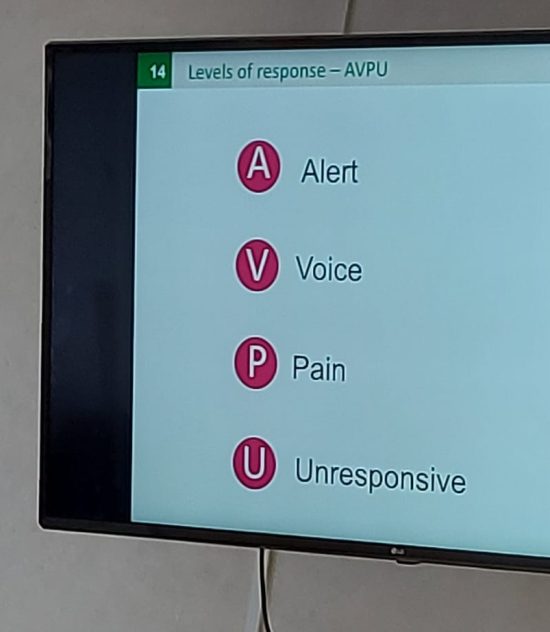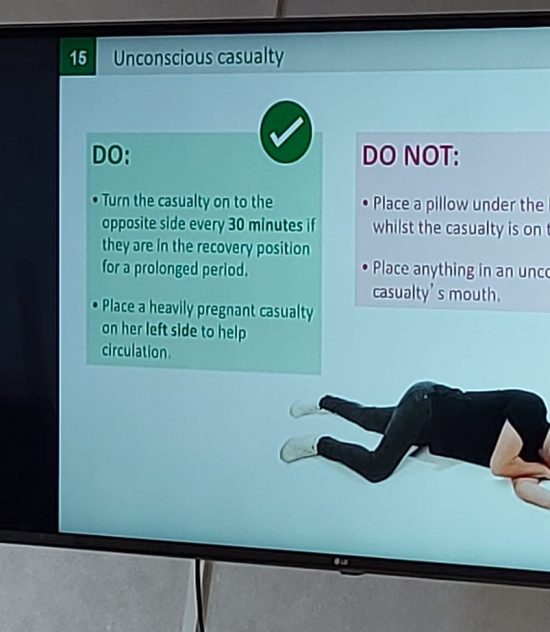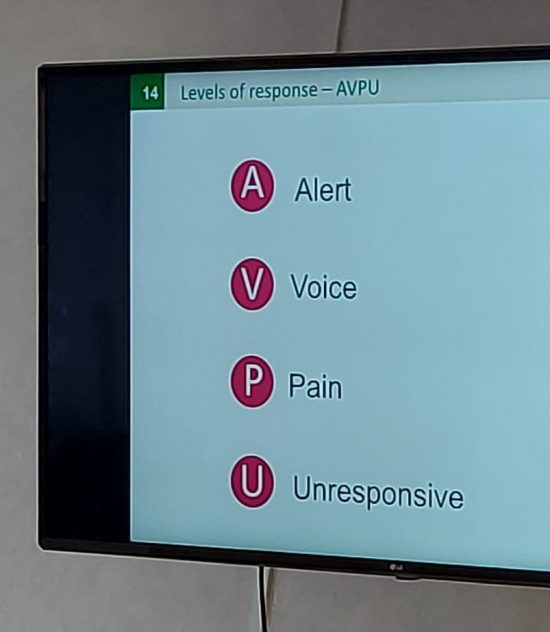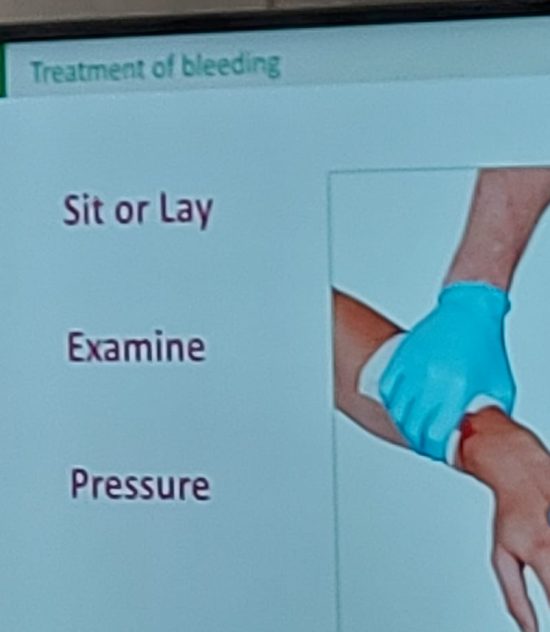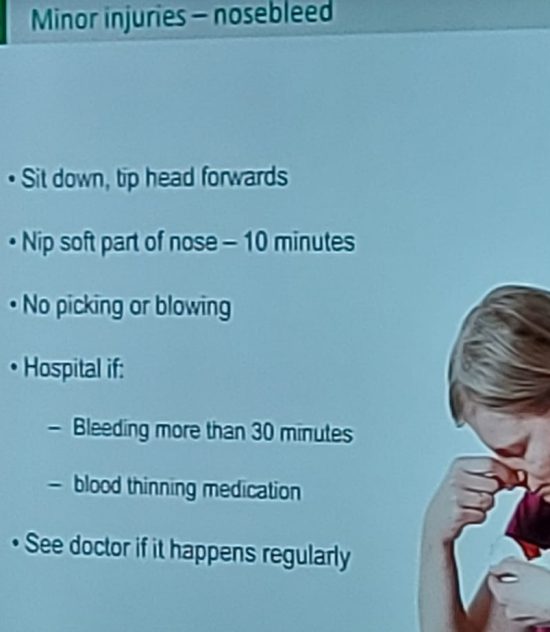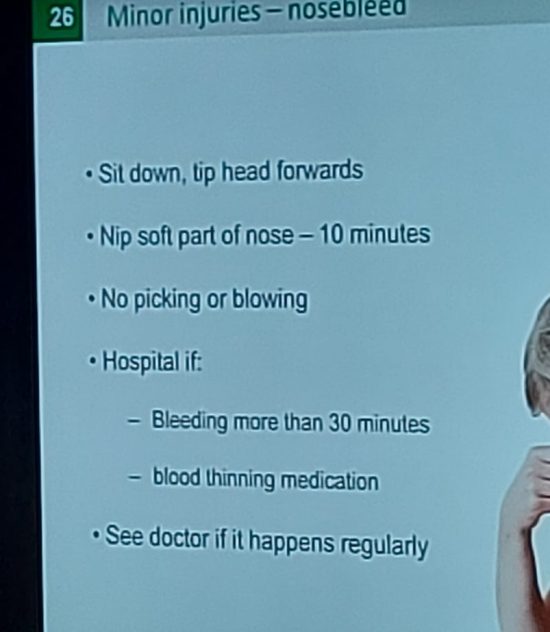At our core, we believe “Knowledge is Power.” This hands-on First Aid & Occupational Injury (OI) training equips employees and individuals with the critical skills needed to act swiftly and effectively during workplace emergencies and injuries.
Whether you’re a first responder, team leader, or part of the wider workforce, this training boosts your confidence and preparedness—helping to create a safer, healthier workplace for everyone.
What You Will Learn
- Essential First Aid Skills: CPR, wound management, burns, fractures, and shock response.
- Workplace Injury Handling: Prevention and immediate response to slips, trips, falls, chemical exposure, and musculoskeletal injuries.
- Occupational Injury Protocols: Proper reporting, documentation, and post-incident actions to prevent recurrence.
- Legal Responsibilities: Understanding employer and employee duties under Health & Safety regulations.
Who Benefits?
For Participants:
- Gain practical skills to save lives and reduce injury severity.
- Build personal confidence in handling emergencies.
- Enhance your professional qualifications with a certified course.
- Develop awareness to avoid potential hazards.
For Employers and Organisers:
- Promote a strong safety culture throughout your organisation.
- Ensure compliance with UK workplace safety laws and regulations.
- Minimise costs related to workplace injuries and downtime.
- Improve staff morale and engagement by prioritising wellbeing.
Why This Training Is Important — And Why We Need More of It
Workplace accidents and medical emergencies can happen at any time. The difference between a minor incident and a tragedy often comes down to how quickly and effectively someone responds. That’s why First Aid and Occupational Injury (OI) training isn’t just a nice-to-have—it’s essential.
Here’s why this training matters:
- Saves Lives: Immediate, knowledgeable first aid can prevent injuries from worsening and even save lives before professional help arrives.
- Reduces Injury Severity: Proper first response limits complications and speeds up recovery for injured employees.
- Empowers Everyone: When more people know what to do in an emergency, the whole workplace becomes safer and more resilient.
- Promotes a Safety Culture: Regular training encourages vigilance, hazard awareness, and shared responsibility for health and safety.
- Ensures Legal Compliance: Many regulations require employers to provide adequate safety training, helping to avoid legal risks and penalties.
- Minimises Costs: Reducing injury severity and downtime lowers healthcare expenses and lost productivity.
- Why We Should Have More of This Training
- Ongoing Preparedness: Skills can fade over time—regular refresher courses keep knowledge fresh and confidence high.
- Adapting to New Risks: Workplaces evolve, and new hazards emerge; continuous training ensures employees stay up to date.
- Building a Network of Responders: The more trained individuals available, the quicker and more effective emergency responses become.
- Empowering the Workforce: Regular training boosts morale and engagement by showing a genuine commitment to employee well-being.
- Reducing Workplace Incidents: Well-trained staff contribute to identifying and preventing risks before accidents happen.
- Investing in frequent and comprehensive First Aid & OI training isn’t just smart—it’s a vital step towards a safer, healthier future for everyone in the workplace.

![Osteogenesis Imperfecta Foundation Network [OIFN]](https://oifn.org/wp-content/uploads/2024/07/logo_oif.png)

